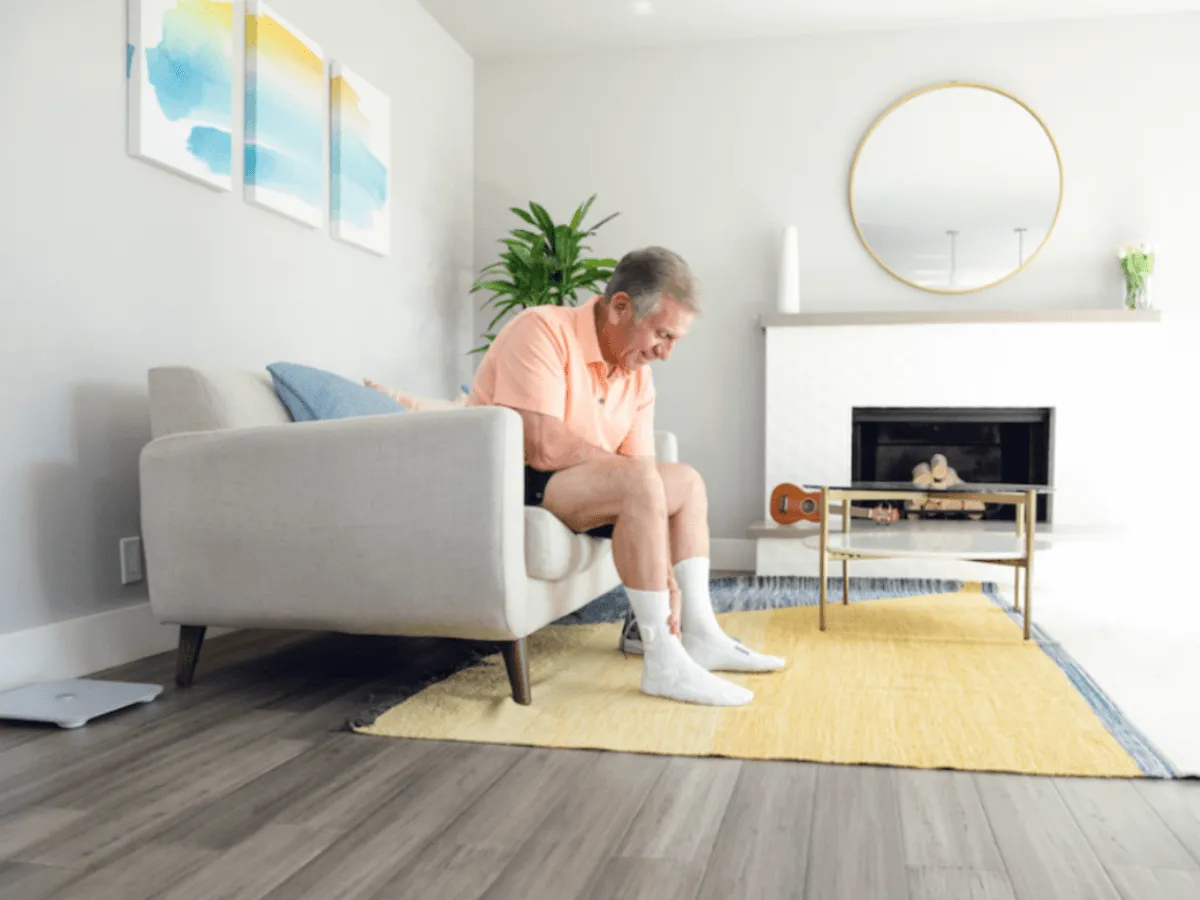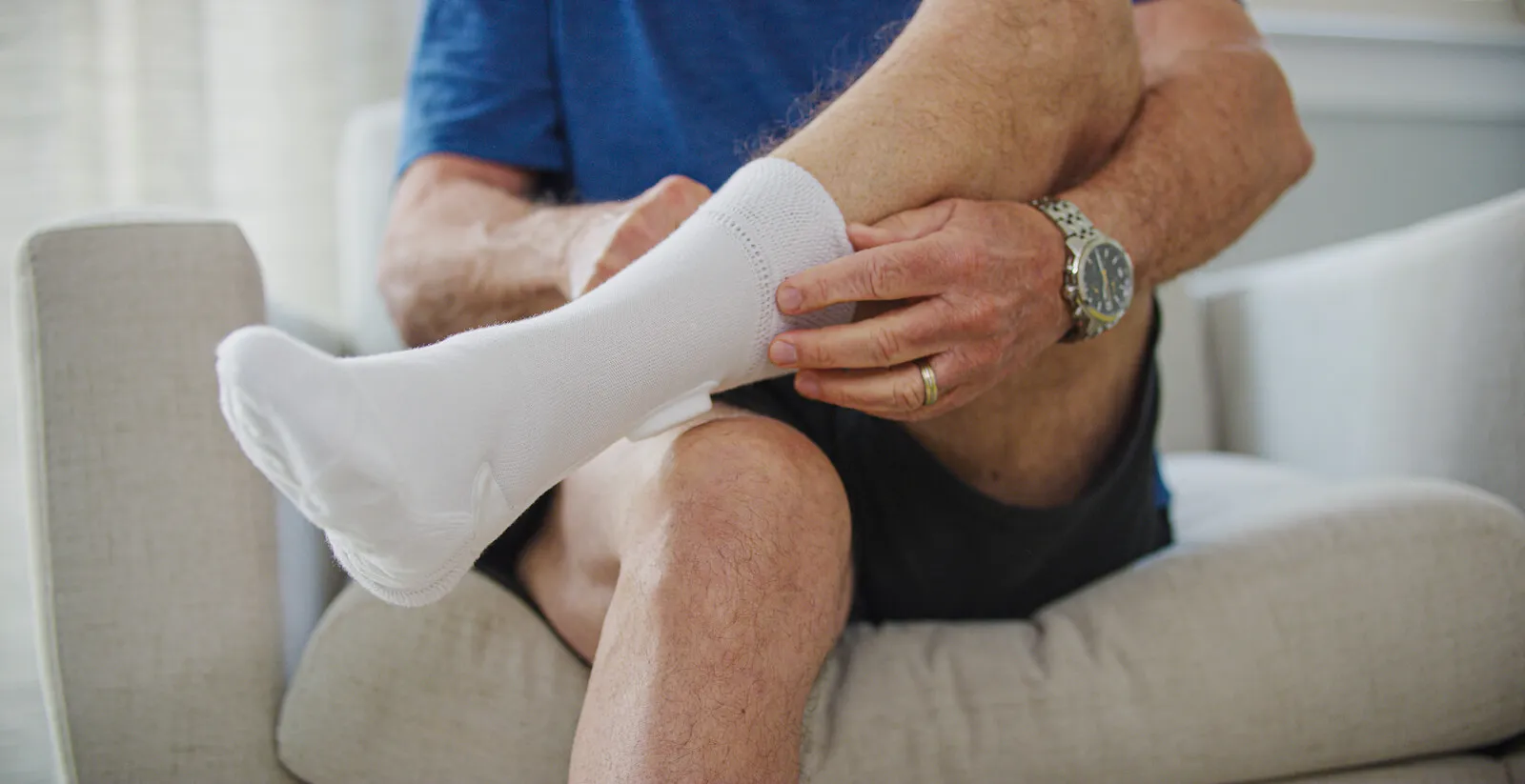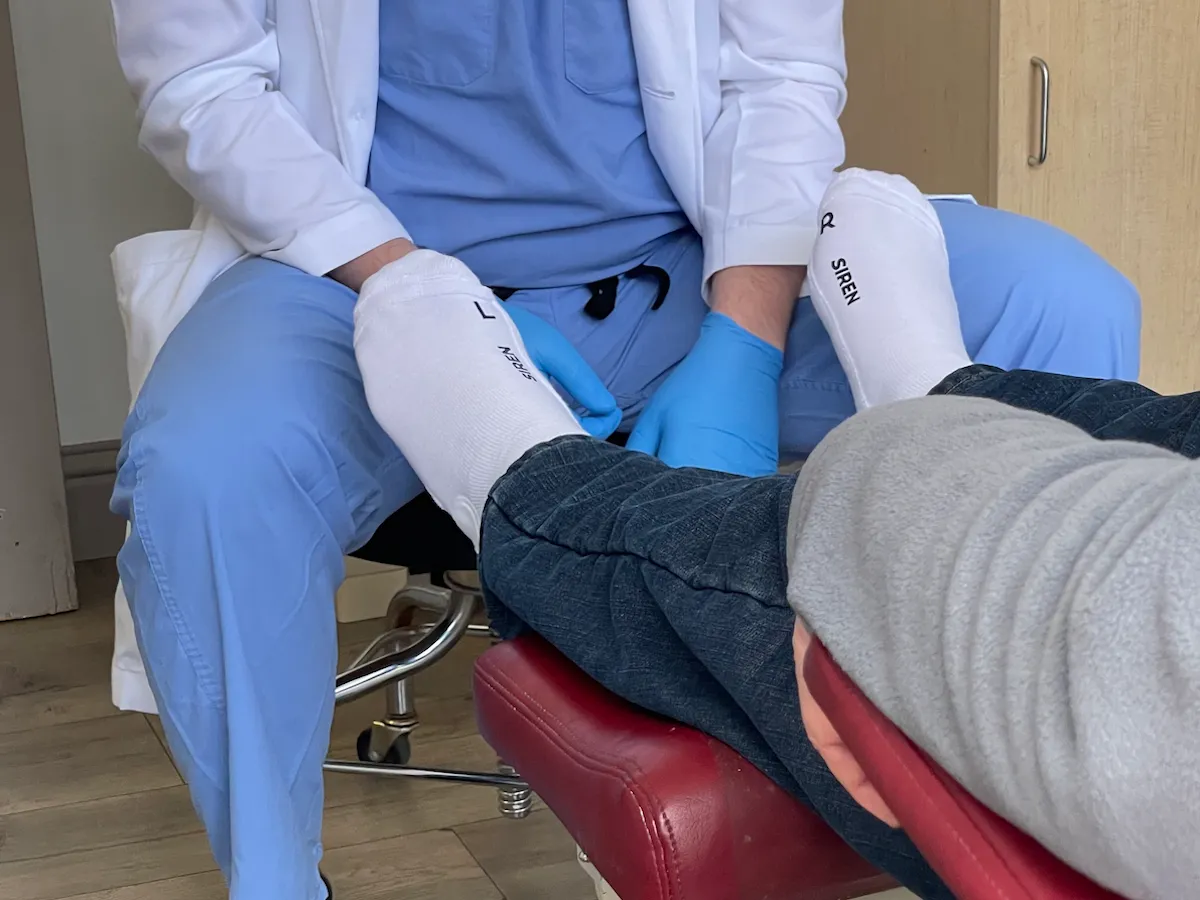A new study of real-world evidence shows patients at risk of diabetic foot ulcers use Siren Socks 22 to 25 days per month and 5.8 days per week on average.
Temperature Monitoring as Predictor of Diabetic Foot Ulcers
Diabetic foot ulcers (DFU) are a highly prevalent complication for people living with diabetes, who have an estimated 25% lifetime risk of developing a foot ulcer. Ulcers often get infected, which can lead to gangrene, sepsis, and ultimately amputation. Over 80% of all non-traumatic amputations in the US are preceded by a diabetic foot ulcer. Prevention and early detection play a key role to curb this extreme economic and personal cost
Temperature has long been established as a predictive factor for diabetic foot ulcers. Identifying areas of injury through inflammation tracking allows patients and their providers to intervene to reduce inflammation before a wound develops. Temperature monitoring has been shown in multiple studies to significantly reduce the risk of ulcers and amputations. Siren Socks have small sensors embedded inside the fabric to track inflammation. The data is sent to a remote care team who coordinates the care with both the patient and the provider. Notably, the socks can be used by people who have already undergone an amputation, as the socks use an ipsilateral temperature algorithm to detect temperature elevations in 1 foot.
Real-World Data
Patients were monitored during normal podiatric practice as they were enrolled in the Siren remote monitoring program. With 160 patients, this is one of the largest studies of its kind on diabetic foot ulcers. As a real-world study, patients were not financially compensated and actually had a financial responsibility for any out of pocket expenses, such as copays and deductibles.
High Utilization of Siren Socks
Patients wore Siren Socks 22 to 25 days per month on average. Notably, over 80% of patients wore the socks more than half the month. Patients wore Siren Socks 5.8 days per week and 93% of the time Siren Socks were worn for at least 3 days per week. Patients also used the socks extensively during the day and wore the socks 11.1 hours per day on average. The average age was 69.9 years old. The youngest patient was 37 years old, and the oldest was 94 years old.
Patient utilization is a key factor to reduce the risk of diabetic foot ulcers and amputations. One study found that only 38.7% of a sample of 331 patients examined their feet 5 to 7 days per week. Another study demonstrated that a 50% rate of adherence to recording foot temperature resulted in a significantly lower likelihood of developing an ulcer. The utilization rates in this study show that the use of remote monitoring technologies like Siren Socks is a key strategy to reduce the risk of diabetic foot ulcers.
Easy to Use
Siren Socks are easy to use. The only thing patients need to do is put on their socks like they would any other day. The socks turn on automatically when you put them on turn off when you take them off. They are machine washable and do not need to be charged. The socks are also machine washable and do not need to be charged. The battery lasts over a year and patients don’t need a smartphone.
Temperature monitoring has existed for a long time and patient utilization is crucial to help avoid the devastating consequences of foot ulcers and diabetes. This is the first study of its kind that gives an in-depth insight into the utilization of what can be live-saving technology.”
About Siren
Siren is a care management company that uses novel medical devices to improve patient outcomes. The company developed the first of its kind microsensor-embedded textile to enable a new type of medical devices. These devices integrate seamlessly into users' everyday lives and allow patients and doctors to make more timely treatment decisions. Siren Socks, the company's first commercialized product, is an FDA-registered temperature monitoring sock for the early detection of inflammation that leads to foot ulcers in people with diabetes.


